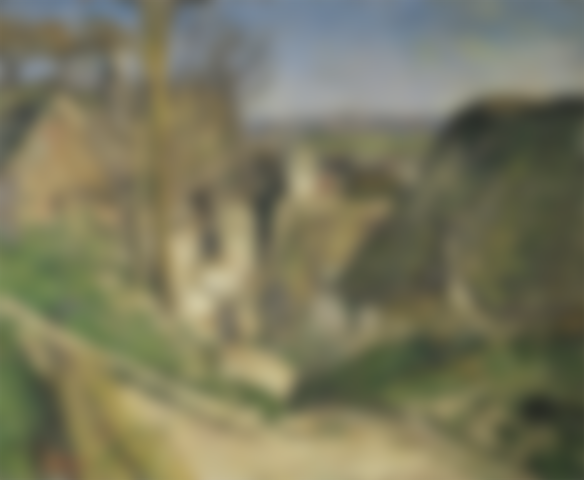Quizzes & Puzzles 44
Some new problems with which to exercise the brain. But first a look at answers and solutions to Quizzes & Puzzles 43. New problems below the image (cartoon).
Answer to Quiz 43:1
Titania and Oberon are the largest of something – of what?
The planet Uranus has 27 moons, as far as we know today. Titania and Oberon are the largest of them. They were also the first two to be discovered, which happened as early as in 1787.
Answer to Quiz 43:2
Who is the highest deity in Japanese mythology?
It is Amaterasu, the sun goddess. @BlueFlipper gave us the right answer.
Japanese nobility claims descent from this goddess, and so does the imperial family. This descent is what gives legitimacy to their position.
Answer to Quiz 43:3
Latin is sometimes considered a “dead” language. But although it is not used in everyday speech, it is highly alive and indirectly present in many other languages, as well as within certain disciplines and areas of activity. Some expressions are often used in Latin without translation.
Do you know what these common expressions in Latin mean?
terra incognita
magnum opus
per se
post mortem
Terra incognita means unknown land, It was originally a term one could find on maps, but today it is also used metaphorically.
Magnum opus means great work, and it was once a term in Alchemy, denoting the four transformations. (It's beyond the scope of this text to elaborate on Alchemy ,but if there is interest in the topic, I can bring it up in a separate article later on.) Today magnum opus refers to a creative artist's most important work, someone's masterpiece.
Per se means by itself or in itself. Something taken out of its context to be considered alone.
Post mortem means after death. The expression post-mortem is sometimes used to denote a post-mortem examination, an autopsy.
Answer to Quiz 43:4
In the retina of the eye, we find the yellow spot (macula lutea). What two pigments make it yellow?
The two pigments, which protect eyes and vision, are carotenoids that need to be regularly replenished, and we get them from our food. I want the names of these two carotenoids.
Lutein and zeaxanthin. You can read more about them in Lutein & Zeaxanthin: Nutrients that Protect Your Eyes from Ageing.
Answer to Quiz 43:5
"I resolved, if possible, to get to the ship; so I pulled off my clothes, for the weather was hot to extremity, and took to the water." ... "I found that all the ship's provisions were dry; and being well disposed to eat, I went to the bread room and filled my pockets with biscuits."
Who is this man, who still had pockets although he was naked? His name is the same as the title of the novel this is quoted from. Without doubt, he is one of the most well known literary characters in the world.
And who is the author responsible for this literary lapse?
The naked man with pockets was Robinson Crusoe, and the novel carrying his name is written by Daniel Defoe.
Solution to Puzzle 43:6
Form a number consisting of two digits or more (no upper limit, but let's say not more than 8 digits for this example).
Create a new number by rearranging the digits of the first one, randomly or in any way you want.
Subtract the lesser number from the larger one.
Remove one digit from the result (not a zero) – but don't tell me which.
Tell me the rest of the digits in any order you want.
Now I can tell you which digit you removed.
But how is it done? How can I calculate which number you removed?
This is a trick that can be quite fun, but it is not difficult to do. It is based on a couple of straightforward principles. I explained this and more in a previous article: Two tricks based on the circularity of 9. I quote it here:
Principle A
If you follow the three first points above, the result will always be a number that is divisible by 9!
Examples:
(i) 81-18=63 = 9x7 / divisible by 9
(ii) 84-48=36 = 9x4 / divisible by 9
(iii) 213-132=81 = 9x9 / divisible by 9
(iv) 6297-2967=3330 = 9x370 / divisible by 9
(v) 59643125-43619255=16023870 = 9x1780430 / divisible by 9
Principle B
If you add the digits of a number that is divisible by 9, the sum will be divisible by 9 too. E.g. 63=> 6+3=9, or 16023870=> 1+6+0+2+3+8+7+0=27, which is divisible by 9.
If you get a sum that contains more than one digit, you can repeat the procedure, 2+7=9, and then you will always get 9 in the end.
It is more general than that:
A number is divisible by 9 if, and only if, the sum of its digits is divisible by 9.
So let's look at an example of the full trick:
Assume you choose: 59643125 (without showing it to me).
The you create a second number by rearranging the digits: 43619255.
You subtract the lesser one from the larger one: 59643125-43619255=16023870.
Now you remove, say, the "3", and keep it secret.
Then you tell me the other digits, in any order you wish: 7106802.
I quickly calculate: 7+1+0+6+8+0+2=24. I know you have removed something, with which this should be a number divisible by 9. The closest number higher than 24, that is divisible by 9, is 27. So I set 27-24=3. Which was the digit you withheld from me!
Since, due to certain properties of the number 9, we can continue to add digits until we have only one left, without changing the result, I could have been continuing with the sum I got, 24, one step further. 2+4=6. And 9-6=3. The same result!

And now some new exercises for brain & memory...
Quiz 44:1
In navigation, what is a sextant used for?
Quiz 44:2
Which author coined the expression “Big Brother” for a totalitarian authority?
Quiz 44:3
Which of the following (living or dead) languages are not Indo-European?
German
Basque
Sogdian
Lithuanian
Albanian
Finnish
Sanskrit
Arabic
Quiz 44:4
"With other men, perhaps, such things would not have been inducements; but as for me, I am tormented with an everlasting itch for things remote. I love to sail forbidden seas, and land on barbarous coasts. Not ignoring what is good, I am quick to perceive a horror, and could still be social with it - would they let me - since it is but well to be on friendly terms with all the inmates of the place one lodges in."
This is said by the main character in a great novel, about a captain who seeks revenge on a large mammal, which once took one of his legs.
Which is the novel, and who is the author?
Quiz 44:5
Who was the French 19th century artist who painted this?

Quiz 44:6
I want a word for a digestive organ, a muscular pouch, sometimes with grit, functioning as a mill when breaking down food. It is most known for being found in birds, but it is more common than that; we'll also find it in some fish and reptiles, and in quite a number of invertebrates. What am I talking about?
You'll find answers and solutions in the next “Quizzes & Puzzles”.
Quizzes & Puzzles has its own label in my Index, where all issues of the series can be found.
In my INDEX, you can find all my writings on Read.Cash, sorted by topic.
Copyright © 2022 Meleonymica/Mictorrani. All Rights Reserved
(Cartoon by Christian Dorn/Pixabay, CC0/Public Domain.)
(All the images are in the Public Domain.)


Quiz 44.3 - I think Sanskrit and Arabic languages